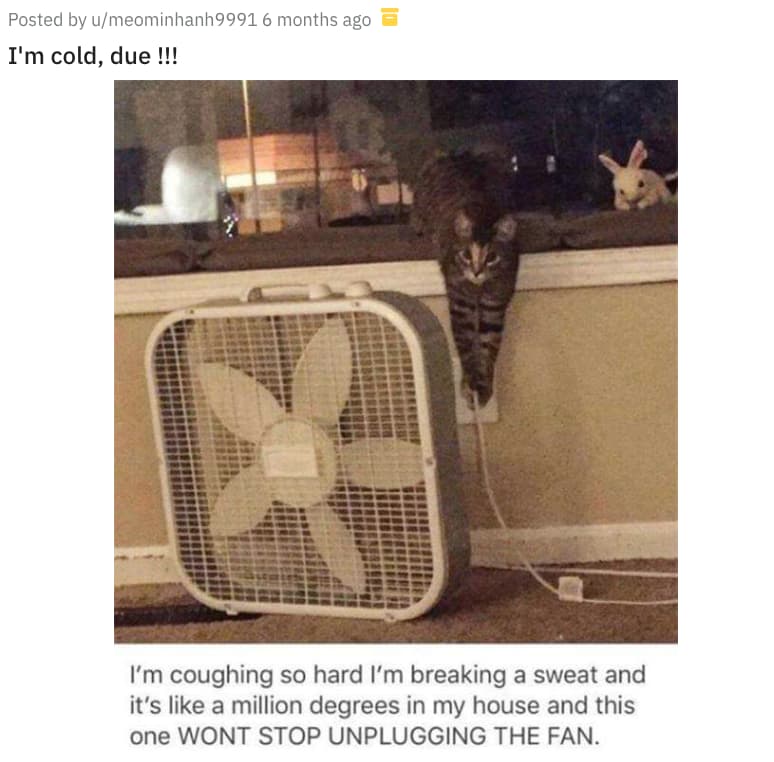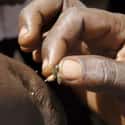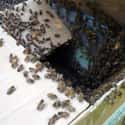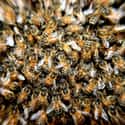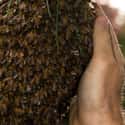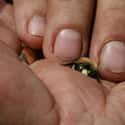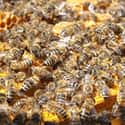-
(#10) You're Going to Swell Up
One thing you may have noticed with one or two bee stings is that the area tends to swell up where you've been stuck. It will get red, it will puff up, and it will turn pink or red as it does so. This is due to your body trying to fight off the venom by sending more blood and more white blood cells to that location. Now, imagine that happening all over your body. When thousands of bees sting you, your face will swell, as will your tongue. Your eyes may swell shut, your throat may swell closed, and your hands may become so swollen that you cannot properly use them.
As this happens, you may feel numbness begin to take over. This is a bad sign, because it means the venom is genuinely beginning to kill you.
-
(#7) More Bees Will Keep Coming
Bees have a pretty cool means of communication, but that kind of bee-talk spells bad news if you're caught in a bee swarm. When bees start fighting with something, they release an alarm pheromone meant to warn other bees of danger. What this also does is rallies other fighters to their cause. That means bees in their vicinity are going to join the chase or attack. More and more bees will keep coming as the fighters begin to die, and they won't care who or what you are, just that there's something near them that needs to be destroyed. This alarm pheromone can go out almost instantly, so it's a matter of minutes before reinforcements arrive.
-
(#11) You'll Have Trouble Breathing
Trouble breathing is generally a sign of allergic reaction rather than a reaction to the bee venom itself, but it can still happen when you're stung enough times. As you are stung, the venom will begin to reach your heart and your lungs. When it does this, your heart will speed up, trying to process the stuff out of you. You may feel like you've been running for miles (if you haven't already really been doing that while trying to escape) and you may feel your heart pounding. Your blood pressure is going to drop, and you may even begin to lose consciousness. Your body will try to save you, of course, but too much venom from any creature is eventually enough to start shutting things down and killing parts of you.
-
(#6) You May Be Stung Over 1000 Times
If you come across a swarm away from a hive, it usually means one thing. When a hive becomes overcrowded, a new queen can sometimes appear and take over; then a large portion from the original hive has to leave. We're talking about a queen and up to 20,000 bees just flying along in a single swarm, looking for a new home. If you get in their way, they can decide it's time for you to go down.
People who have died from bee swarms have been found with 1,000 individual stings, and that number could be even higher. What's worse is that the more you fight back, the more stings you may get. Again, running or getting inside are really the only ways you have a chance.
-
(#8) Venom Is Going to Enter Your Blood Slowly
So how exactly do bees inject venom into you? You're swarmed, you're being stung, and you're starting to feel pained and woozy, but why? Well, for starters, when a bee stings you, the stinger detaches from the body, killing the bee. But the venom doesn't stop injecting when the bee dies. There's a sac attached to the stinger that begins pumping you with the stuff the moment the skin is broken, but it continues doing this slowly over a period of time. That's one major reason why bee swarm stings seem to get worse as time passes.
Unfortunately, trying to remove the stingers may make it worse. It's good to remove them, so the venom injections stop, but if you use tweezers, you can actually squeeze the sac, injecting even more of the stuff into your blood stream. Once there, the venom will spread to your heart, lungs, and other vital organ.
-
(#3) You Don't Actually Have to Be Allergic
The vast majority of deaths due to bees have to do with some sort of allergic reaction. People have a reaction to the venom in bee stings, they go into anaphylactic shock, and they can die within minutes of the initial sting. However, that's not the only way bees can kill you. Bee venom is, in fact, harmful, but the average bee doesn't produce enough venom in order to do any real damage. Plus, bees don't sting you over and over - a bee can only inject venom into your body once before dying. However, if attacked by a swarm, you may receive tons of stings, and that can be enough to become seriously dangerous.
If you're wondering how much you could take, keep in mind that the average human can tolerate ten stings per pound of body weight. So, it'll take a lot to kill you, but it is certainly possible.
New Random Displays Display All By Ranking
About This Tool
I believe that many people have been stung by bees when they were young. Have you ever thought about being stung thousands of times by bees? On June 1, 2013, a man in Texas was attacked by a swarm of bees and died while trying to clean a beehive. This attack can definitely be regarded as the most terrifying death in the world.
There’s still much we don’t know about these fascinating small creatures, but one thing is sure, bees are mighty small who defend themselves with ferocity. It is necessary to learn how to treat the attack of bees. The random tool explained 14 details about how it will be if attacked by a swarm of bees.
Our data comes from Ranker, If you want to participate in the ranking of items displayed on this page, please click here.








